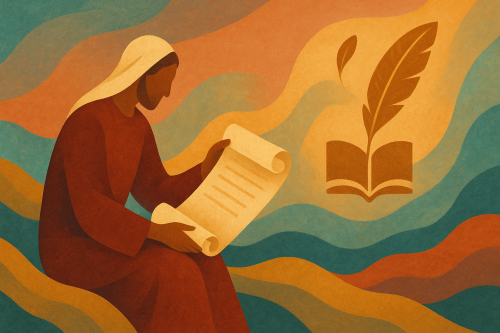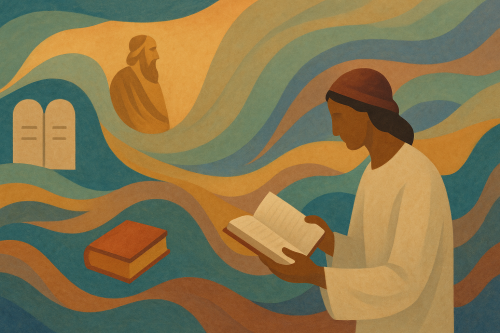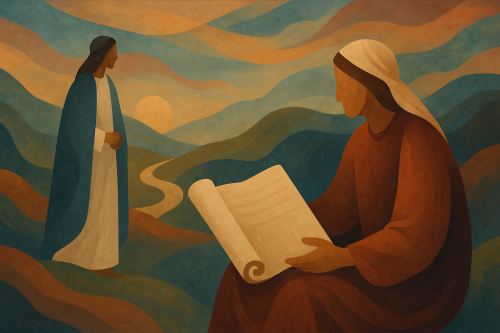Jeremiah 29:11 offers a powerful message of hope. But what does this popular verse really mean in context, and how should we as Christians apply this promise? Let us explore Jeremiah 29:11’s meaning by looking at its biblical and historical context, addressing common misinterpretations and discovering the true hope it offers to believers today.
“For I know the plans I have for you,” declares the LORD, “plans to prosper you and not to harm you, plans to give you hope and a future.” (Jeremiah 29:11)
Jeremiah 29:11
Dive even deeper into Jeremiah 29:11 using Scripture Scanner.
Learn Jeremiah 29:11Context of Jeremiah 29:11: A Letter to the Exiles
To grasp this Bible verse’s meaning we first need to understand when and to whom it was written. Jeremiah 29:11 occurs in a letter sent by the prophet Jeremiah to Israelites who had been taken captive to Babylon. The people of Judah were in exile, taken from their homeland as a consequence of their sin and idolatry. Jeremiah had prophesied that Jerusalem would fall and the people would serve the king of Babylon and now that judgment was unfolding. The prophet addresses those displaced people far from home.
Jeremiah’s letter to the exiles contains possibly surprising instructions. Rather than promising a quick rescue God tells the people to settle in for a long stay in Babylon. Just before this verse, God says:
“When seventy years are completed… I will bring you back” (Jeremiah 29:10).
Jeremiah 29:10
Seventy years would pass before the exiles returned home. Jeremiah 29:11 was originally a promise to those exiled Israelites that God’s long-term plan was to prosper them by restoring them to their land. It was God’s assurance that He had not forsaken His people despite their present suffering.
Check this out: How to Memorise the Bible? Learning Scripture by Heart.
“Plans to Prosper You” – Peace, Not Instant Prosperity
It’s important to understand what “prosper” means in this verse. The Hebrew word translated as “prosper” is shalom (often rendered “welfare” or “peace.”) Shalom signifies wholeness, completeness, and well-being. Jeremiah 29:11 is saying God’s plans are for the shalom (peace and wholeness) of His people, not for their harm. In context, God was promising to eventually give the exiles peace and restoration.
Contradicting False Prophets
This promise of shalom stood in stark contrast to the rosy but false messages other prophets were preaching. Earlier a false prophet named Hananiah had told the people that God would break Babylon’s yoke in just two years (Jeremiah 28:2-4). That feel-good prophecy was a lie, giving false hope of an easy and quick future.
Seek the Good Others in the Waiting
Jeremiah contains God’s true word: the exile will last 70 years, so settle down in Babylon and seek the peace (shalom) of the city where you are exiled.
seek the peace and prosperity of the city to which I have carried you into exile (Jeremiah 29:7).
Jeremiah 29:7
Rather than encouraging wishful thinking, God challenges the exiles to trust Him through a long period of hardship. He even calls them to bless their captors by praying for Babylon’s welfare!
Try read: How to Understand Scripture: Interpreting Bible Verses
Common Misconceptions
Not a Personal Prosperity Guarantee
Because this verse is so uplifting it’s often lifted out of context and misapplied. Many people read Jeremiah 29:11 as if it were a personal guarantee of immediate prosperity or success. It’s sometimes treated like a divine promise that God will bless all your plans and that your dreams will come true and you won’t encounter harm. However that’s not what this verse actually means.
Some assume “plans to prosper you” means God will bring health, wealth, and problem-free living to every individual who believes. This is not the case. Jeremiah was not preaching a prosperity-gospel message – quite the opposite. The context of Jeremiah 29:11 is God upending the people’s own plans and expectations. Rather than endorsing the people’s plans the Book of Jeremiah shows God disrupting human plans and bringing painful correction before ultimate restoration.
It’s Not a Promise of an Easy Life
God’s promise “not to harm” the exiles did not mean they wouldn’t suffer in Babylon. In fact, most of them would not live to see the end of the 70-year exile. Similarly, Christians should not read this verse as a guarantee that we will be spared from hardship or given immediate relief from trials. Jesus Himself said:
“In this world you will have trouble” (John 16:33)
John 16:33
Check out: Where to Start Reading the Bible
The Meaning of Jeremiah 29:11
So what then is the meaning of Jeremiah 29:11? Simply put, it’s a reassurance of God’s faithful plans for His people. Plans that ultimately centre on Jesus Christ. This “God’s plan” verse offers even greater comfort than a trivial promise of easy success. It points to our profound security in God’s redemptive plan.
God’s Faithfulness
Jeremiah 29:11 shows us God’s character and covenant faithfulness. To the Jewish exiles, those words “I know the plans I have for you” were God’s way of saying he hasn’t forgotten them and still has a purpose for them.
God did restore the nation of Israel from Babylon after 70 years, and in time He fulfilled even greater plans – the coming of the Messiah from Israel’s lineage.
Jesus is the Redemptive Plan
For us today, every promise of God finds its fulfillment in Christ. The apostle Paul wrote:
“For all the promises of God find their Yes in [Jesus]” (2 Corinthians 1:20).
2 Corinthians 1:20
This means that Jeremiah 29:11, like all Old Testament promises, points forward to the hope we have because of Jesus. It was through Jesus that we find the peace and wholeness that was promised.
Continued Suffering
Yet, just as with the exiles, that future hope does not mean the absence of present trials. The New Testament makes this clear:
“We rejoice in hope of the glory of God. Not only that, but we rejoice in our sufferings, knowing that suffering produces endurance… and hope” (Romans 5:2–4).
Romans 5:2–4
Trusting God’s Timing
Jeremiah 29:11 assures us of God’s loving plans while also reminding us to trust His timing. The exiles were encouraged that their story wasn’t over. God’s “future and hope” for them would come after a period of waiting. We can apply Jeremiah 29:11 to ourselves in this sense: we can be confident that God’s plans for us are ultimately for our welfare and not for our harm and that He gives us a hopeful future that no present circumstance can take away.
Love in the Waiting
Jeremiah’s message challenges us in how we live here and now. Just as the exiles were called to seek the shalom of their city, we are called to be a blessing even amid a fallen world. Rather than simply waiting for heaven, we engage with our world, loving our neighbours and even our enemies.
Peace comes not from escaping hardship but from seeking the good of others and trusting that God is always creating life in the midst of our suffering.
So Jeremiah 29:11 points us to God’s good plans and our ultimate hope. We can take comfort that our Lord knows the plans He has for us and they are plans anchored in His unchanging love aimed at our eternal welfare and filled with hope through Jesus Christ.




